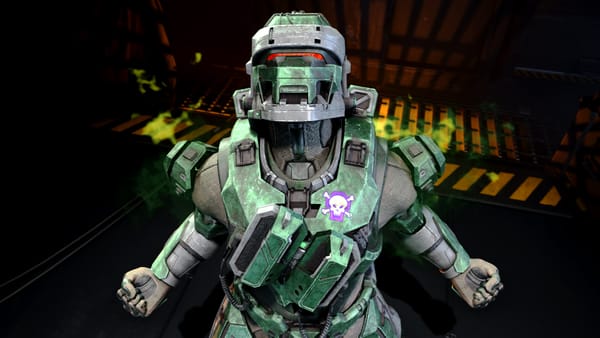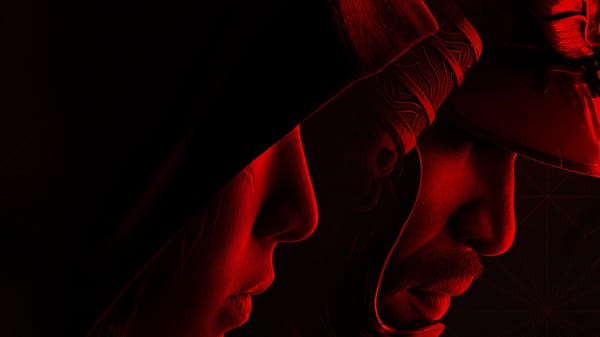29: Turbulence
Google’s endeavours to establish itself in the game industry remind me of my attempts to learn Japanese over the years. On paper, it really ought to work: I excelled at modern languages in my youth, am a reasonably quick study, and have plenty of motivation to learn. I love Japan, and in the Before Times would get out there once or twice a year for work and hate how reliant I was on other people to get by. So, with each new trip on the calendar, out comes the podcast, the book or the video series. I go back to the start because I’ve forgotten it all, get a little further than the previous time — then before I know it I’m in Japan, leaning on translators and ex-pat pals as always. I come home with a few new words and phrases, but that’s about it. Maybe next time.
And so to Stadia, which seemed on first inspection like Google had finally got its head round the whole games thing, but has since gone the same way as all those other Google projects that looked fine on the runway but stalled shortly after takeoff. Google closed Stadia Games & Entertainment, its in-house development division, last year. But it has styled this as a pivot, rather than a pullback. Yesterday’s keynote broadcast from the Google For Games Developer Summit lays out Stadia’s new direction. It is… not good.
The headline change is in how revenue from the monthly subscription service, Stadia Pro, is shared with partners. Under the new system, 70% of all Pro subscription revenue will be split between the makers of the games on the service. On paper, that’s a reasonable idea, until you get to the small print. The share is allocated on an “engagement basis”, with payouts calculated on how many “session days” a game has been played for during the month. If a user loads up a game two, or five, or 15 times in a single day, that counts as one session day. If they load a game once on day one, then once the following day, that’s two session days. The implications of this are clear, and terrible: it rewards games that are built around repeated, short-burst engagement — multiplayer, live-service, you know the deal — and punishes everything else, particularly tightly focused, story-driven singleplayer games that don’t take long to complete and are unlikely to be replayed once finished. The sort of games, if you ask me, for which subscription services are perfect.
Looking at the 26 games currently available through Stadia Pro, I can already see a problem. The ten-hour République is now up against the endlessly replayable PUBG. The excellent Journey To The Savage Planet is a quarter of the runtime of The Legend Of Heroes: Trails Of Cold Steel III, and so stands to make a quarter of its money. The game-length tracking website How Long To Beat reckons I can knock out The Darkside Detective in three-and-a-half hours; Terraria, apparently, will take me 90.
Sure, I can see Google’s motivation here. Like many a tech company before it, it has realised that engagement figures can be made to look more flattering than revenue numbers. And yes, for developers of a certain style of game, it’s a decent deal in theory. But what does this playtime-based revenue model mean for the future of game design? Nothing good, I fear.
Rami Ismail put this into stark context in 2019, after the announcement of Google Play Pass, a monthly subscription of mobile games and apps that paid out based purely on playtime. “If engagement becomes money, then grinding, addictive loops, and infinite gameplay become the best way to earn money,” he told IGN. “If developers get paid for engagement, the only model that makes sense is to maximise the time people spend in the game or the number of times people have to check the game, artificially if necessary. It’s upsetting.” Mike Rose, boss of indie publisher No More Robots, added: “Short narrative games will be forced out. We’ll be drowned in a sea of Fortnites and pachinko machines.”
And yet here we are, two years later, with Stadia having launched and tanked and Google having seemingly learned nothing about how the game industry works along the way. It has made what it thinks is another good move and immediately alienated the vast majority of people making games today. Sterling work.
The first Japanese book I ever bought, back in my late teens, was for those who needed to learn the language for business purposes (it was the only one the local bookshop had in stock). One phrase has, somehow, always stuck with me; I have deployed it often down the years because it’s an odd thing for someone who doesn’t speak Japanese to be able to say, and you’d be surprised at how often it can be used in an appropriate context. It can here, too. Kore wa tomodachi no pati desu. ‘This is a party for friends only.’ You make an endless, live-service multiplayer game with daily login rewards? Right this way, sir, have a table in the VIP section. The rest of you? No shoes, no shirt, no entry.
Fine, comes the reply. We’ll go somewhere else. It looks pretty dead in there anyway.
MORE!
- Since I wrote all that, No More Robots’ Mike Rose has tweeted to say that the new Stadia revshare is actually on top of existing upfront payments, albeit with the caveats ‘as far as I know’ and ‘could be wrong’. That would be a little better, I suppose, but I think most of what I’ve written above still stands, and I’m yet to see anyone else confirming what Rose has said/heard. We’ll see!
- Double Fine’s Psychonauts 2 will have an invincibility toggle, to enable players of “all ages [and] all possible needs” to see the credits roll. Worth bearing in mind that the industry’s welcome push towards greater accessibility isn’t just for those who need it right now. None of us is getting any younger.
- A near-perfect sealed copy of Super Mario 64 has sold for $1.56 million. This spate of big auctions is worrying and dumb and we have in no way heard the last of it.
- Hideo Kojima, director of Death Stranding: Director’s Cut, doesn’t like the name of his forthcoming PS5 exclusive, because it implies the original was edited in some way. Stop laughing at the back.
- The Sumo Group has opened its 14th (!) studio, this time in Canada.
- Red Dead Redemption 2 has been updated with DLSS support, which is great news for people like me who can’t play a big-budget game on PC without endlessly tinkering with settings to try and eke out a few more frames of performance. I will probably still get two minutes in and think, ‘Hmm, maybe if I turn shadow quality down a bit…’ then switch it off, but you never know.
- In bad fashion news, Tag Heuer has announced a $2,000 Mario smartwatch, and Pokemon Go maker Niantic has launched a line of activewear. Down with this sort of thing.
- Such is the buzz around Final Fantasy XIV at the moment — seemingly driven largely by World Of Warcraft streamer Asmongold making the switch — that over the weekend Square Enix’s webstore sold out of digital copies of the game, sparking a temporary freeze in creation of new accounts.
- A reminder that the general gaming public doesn’t give a toss about esports.
That’s it for today. Apologies for my absence on Monday. The post-football hangover, and the actual hangover, necessitated a day licking my wounds on the sofa. Just about back up to speed now. As ever, if you’ve enjoyed this, do give it a share. And perhaps you’d also consider a paid subscription. Buttons below! Catch you soon.





